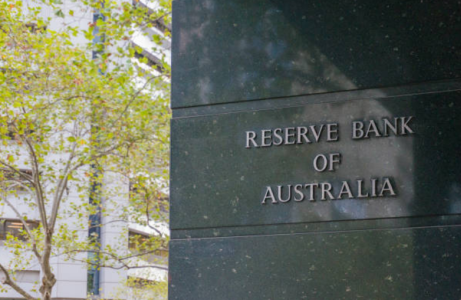New payment rules could make cash useless as hidden downside emerges
By
Gian T
- Replies 0
Australia is on the brink of a major shake-up in the way we pay for goods and services, and if you’re someone who prefers to pay with cash or just likes to know exactly what you’re being charged for, there’s a big change coming that you’ll want to know about.
A new proposal could spell the end of those extra charges that often appear when paying by card.
On paper, the change looks like a clear benefit for shoppers, potentially saving billions nationwide. But behind the numbers, the real impact remains to be seen.
But as with most things in life, the devil is in the details, and not everyone is convinced this is good news, especially for those of us who still like to pay with cash.
When you pay with a card—be it EFTPOS, Mastercard, or Visa businesses can charge you a visible surcharge for processing the payment.
If you pay with cash or a bank transfer, you avoid the extra fee.
The system is transparent, for better or worse: you know what you’re paying for and can choose your payment method accordingly.
The RBA’s new proposal would scrap these visible surcharges altogether. Instead, the business would absorb the cost of processing card payments, and, as many critics point out, it is likely passed on to all customers through higher prices, regardless of how they pay.
Cash campaigner Jason Bryce, who’s been a vocal advocate for Australians who rely on cash, has called the plan a 'disaster' and 'un-Australian.'
He argues that by baking the cost of card payments into the price of goods, everyone pays for the perks enjoyed by credit card users, think reward points, free gifts, and luxury travel deals—even if they’re paying with cash.
'Ordinary people are going to be paying for the rich’s benefits, the holidays, the concierge service, the free gifts,' Bryce told the media.
'They’re going to hide that cost and everybody’s going to pay, and it doesn’t matter whether you bring a card, a phone, or cash to the shop.'
It’s a sentiment echoed by the Australian Restaurant and Cafe Association, which warns that the move will simply drive up menu prices and undermine small businesses. 'Who the hell does the RBA think will bear the cost of this ridiculous decision?' asked chief executive Wes Lambert.
'A blanket ban on surcharging will undermine small businesses, reduce price transparency, and mandate price hikes across every menu in Australia.'
Small businesses are particularly concerned. The Council of Small Business Organisations Australia says that while the changes might make fees less visible, they won’t make them go away.
Instead, businesses will just raise their prices to cover the costs, hiding the surcharge in the price of every item.
The Independents Payment Forum, representing small retailers, cafes, service stations, and convenience stores, agrees.
'The proposed regulatory options fail small businesses and the local communities they serve,' said co-founder Bradford Kelly.
'They benefit big business, big banks, and big offshore companies.'
The RBA, for its part, argues that the changes will benefit both consumers and businesses, especially as fewer Australians use cash.
RBA Governor Michele Bullock says it’s time to address the current system's 'high costs and inefficiencies' and that lowering the cap on interchange fees (the fees businesses pay to card issuers) will help small businesses most.
The RBA estimates that 90 per cent of small businesses will be better off, saving a collective $185 million.
The central bank also wants to force card networks and payment processors to publish the fees they charge, hoping this will foster more competition and keep costs down.
Treasurer Jim Chalmers has indicated the government is open to banning fees on debit card transactions from 2026, but the RBA’s proposal goes further by including credit cards as well.
The government will consider the recommendation, but the RBA believes it has the power to make the changes on its own.
Don’t expect to see these changes overnight. The RBA’s proposals are still open for feedback, and any changes won’t kick in until July 2026.
While the RBA insists that cash will remain a valid payment method, there’s no denying that these changes make it less attractive for businesses to accept cash.
If the cost of card payments is simply built into the price of everything, there’s less incentive for shops to offer a discount for cash—or even to accept it at all.
For many older Australians, cash isn’t just a payment method; it’s a way of life. It helps with budgeting, it’s universally accepted, and it doesn’t require a smartphone or internet connection.
However, as the country moves further towards a cashless society, those who rely on cash risk being left behind.
If you’re concerned about these changes, now is the time to speak up.
The RBA is still accepting feedback, and consumer groups are urging Australians—especially those who prefer cash—to do so.
 Do you think scrapping card surcharges is a good idea, or are you worried about hidden costs and the future of cash? Have you noticed businesses already moving away from cash payments? Share your thoughts and experiences in the comments below.
Do you think scrapping card surcharges is a good idea, or are you worried about hidden costs and the future of cash? Have you noticed businesses already moving away from cash payments? Share your thoughts and experiences in the comments below.
Read more: ‘Where do we stop?’: Expert slams shocking new surcharge trend
A new proposal could spell the end of those extra charges that often appear when paying by card.
On paper, the change looks like a clear benefit for shoppers, potentially saving billions nationwide. But behind the numbers, the real impact remains to be seen.
But as with most things in life, the devil is in the details, and not everyone is convinced this is good news, especially for those of us who still like to pay with cash.
When you pay with a card—be it EFTPOS, Mastercard, or Visa businesses can charge you a visible surcharge for processing the payment.
If you pay with cash or a bank transfer, you avoid the extra fee.
The system is transparent, for better or worse: you know what you’re paying for and can choose your payment method accordingly.
The RBA’s new proposal would scrap these visible surcharges altogether. Instead, the business would absorb the cost of processing card payments, and, as many critics point out, it is likely passed on to all customers through higher prices, regardless of how they pay.
Cash campaigner Jason Bryce, who’s been a vocal advocate for Australians who rely on cash, has called the plan a 'disaster' and 'un-Australian.'
He argues that by baking the cost of card payments into the price of goods, everyone pays for the perks enjoyed by credit card users, think reward points, free gifts, and luxury travel deals—even if they’re paying with cash.
'Ordinary people are going to be paying for the rich’s benefits, the holidays, the concierge service, the free gifts,' Bryce told the media.
'They’re going to hide that cost and everybody’s going to pay, and it doesn’t matter whether you bring a card, a phone, or cash to the shop.'
It’s a sentiment echoed by the Australian Restaurant and Cafe Association, which warns that the move will simply drive up menu prices and undermine small businesses. 'Who the hell does the RBA think will bear the cost of this ridiculous decision?' asked chief executive Wes Lambert.
'A blanket ban on surcharging will undermine small businesses, reduce price transparency, and mandate price hikes across every menu in Australia.'
Small businesses are particularly concerned. The Council of Small Business Organisations Australia says that while the changes might make fees less visible, they won’t make them go away.
Instead, businesses will just raise their prices to cover the costs, hiding the surcharge in the price of every item.
The Independents Payment Forum, representing small retailers, cafes, service stations, and convenience stores, agrees.
'The proposed regulatory options fail small businesses and the local communities they serve,' said co-founder Bradford Kelly.
'They benefit big business, big banks, and big offshore companies.'
The RBA, for its part, argues that the changes will benefit both consumers and businesses, especially as fewer Australians use cash.
RBA Governor Michele Bullock says it’s time to address the current system's 'high costs and inefficiencies' and that lowering the cap on interchange fees (the fees businesses pay to card issuers) will help small businesses most.
The RBA estimates that 90 per cent of small businesses will be better off, saving a collective $185 million.
The central bank also wants to force card networks and payment processors to publish the fees they charge, hoping this will foster more competition and keep costs down.
Treasurer Jim Chalmers has indicated the government is open to banning fees on debit card transactions from 2026, but the RBA’s proposal goes further by including credit cards as well.
The government will consider the recommendation, but the RBA believes it has the power to make the changes on its own.
Don’t expect to see these changes overnight. The RBA’s proposals are still open for feedback, and any changes won’t kick in until July 2026.
While the RBA insists that cash will remain a valid payment method, there’s no denying that these changes make it less attractive for businesses to accept cash.
If the cost of card payments is simply built into the price of everything, there’s less incentive for shops to offer a discount for cash—or even to accept it at all.
For many older Australians, cash isn’t just a payment method; it’s a way of life. It helps with budgeting, it’s universally accepted, and it doesn’t require a smartphone or internet connection.
However, as the country moves further towards a cashless society, those who rely on cash risk being left behind.
If you’re concerned about these changes, now is the time to speak up.
The RBA is still accepting feedback, and consumer groups are urging Australians—especially those who prefer cash—to do so.
Key Takeaways
- The Reserve Bank of Australia has proposed banning surcharge fees on debit and credit card transactions, aiming to save Aussies money and make payment systems more efficient.
- Critics warn that removing visible surcharges will just see the costs quietly included in the price of goods, meaning even cash-paying customers will end up subsidising perks for card users.
- Small business groups and cash advocates say the proposal would reduce price transparency and effectively force a price rise across all products, harming both consumers and small businesses.
- Supporters of the ban say it will benefit consumers by eliminating annoying checkout fees, while the RBA claims most small businesses will see cost savings and that the changes won’t take effect until July 2026.
Read more: ‘Where do we stop?’: Expert slams shocking new surcharge trend








